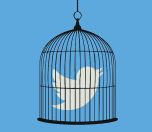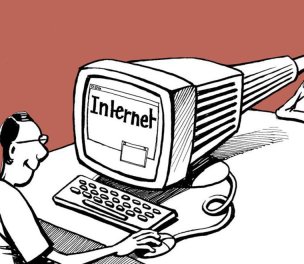"Internet without censorship"
Click to read the article in Turkish / Kurdish
According to a report compiled by Free Web Turkey platform from public sources, 42 percent of the blocked news in Turkey between November 2019 and October 2020 were directly related to President and Justice and Development Party (AKP) Chair Recep Tayyip Erdoğan, his family or the mayors and officials of the AKP.
The report titled "End of news: Internet censorship in Turkey" was published as part of the Free Web Turkey project implemented by the Media and Law Studies Association (MLSA) between November 1, 2019 and October 31, 2020. In addition to a thematic review of access blocks, the report evaluates the risks posed by Turkey's most recent social media regulation, which entered into force in October, in light of the public transparency reports provided by online platforms.
According to the report's findings, at least 1,910 URLs, domain names and social media posts were blocked within this period. While 870 of the blocked URLs contained news stories, a total of 26 news websites were banned during the monitoring period, some even more than once.
The report also reveals the tendency of decision-makers to block access to news stories that are related to the government, as well as to news regarding the perpetrators of crimes against women and children.
Some findings from the report are as follows:
42 percent of blocked news related to government
"The project's findings bring to light that 42 percent of blocked news reports pertain to information directly related to Turkish President and AKP leader Recep Tayyip Erdoğan, his family, and to mayors or officials of the AKP.
"Among these banned news are reports published in November 2019 about women being forced into sex-work by AKP's provincial administration in Manisa, news published in February 2020 about First Lady Emine Erdoğan's 50-thousand-dollar purse, and reports about the acquisition of land located in the area of the Kanal Istanbul project by former Minister of Treasury and Finance Berat Albayrak, which were also published in February.
65 percent of access blocks targeted news URLs
"The Free Web Turkey project identified 150 judgments on access blocks which affected at least 1,910 URLs and revealed that among these court decisions, 26 led to the ban of news sites and 870 to the ban of news URLs. The report moreover underlined that 101 out of the 150 decisions were directed at news URLs (not counting domain names).
"Against this background, the report states that 'it becomes strikingly obvious that the government and the Criminal Judgeships of Peace are heavily censoring critical content about the government.'
"The report also states that during this period, 56 URLs containing news about the pandemic were blocked. As examples for URL bans, the report mentions the social media posts of journalist Fatih Portakal from April, in which he criticized the government's management of the COVID-19 pandemic, and news reports about a construction on the land rented by the Presidency's Communications Director Fahrettin Altun in the Kuzguncuk district on the Asian side of the Bosphorus.
"Under the topic of blocked opposition websites, the report also includes the website Özgürüz which was founded by journalist Can Dündar and blocked respectively in May, June and August as well as the website of the women's news agency Jinnews, which publishes in Kurdish, Turkish and English and was blocked once each in February, August and November and twice in October. The websites of the Etkin News Agency and the newspaper Yeni Demokrasi were also blocked twice in October. The Turkish website of Rudaw, a news agency based in the autonomous Kurdistan Region in Iraq, and Nupel.Net news site were also subject to an access block.
9 percent of restrictions protect perpetrators of crimes against women and children
"The thematic analysis of the report shows that almost 9 percent of the identified decisions on access restrictions (13 out of 150) aimed at protecting alleged perpetrators of crimes committed by men against women and children. Accordingly, news about Fatma Altınmakas, who was murdered by her husband after she was raped by her husband's brother, as well as certain titles and entries in the collaborative online dictionary ekşi sözlük about Duygu Delen, Aleyna Çakır and Şeyda Yılmaz, who died under suspicious circumstances, were blocked.
"Another access ban was imposed on news regarding the arrest of the leader of the Ussaki sect based in Sakarya on the grounds of accusations of child abuse. In addition, the ban of news about the national wrestler Recep Çakır, who has been convicted of sexual assault, is an example of the debate on the 'right to be forgotten,' which began after the adoption of the new social media law.
Censorship awareness should be increased
"Against the background of the new social media law, the report states that Internet users in Turkey and their freedom of expression are left to the mercy of social media companies.
"It recommends the representatives of civil society organizations to urge these companies not to appoint a representative in Turkey.
"The report also highlighted that it would be beneficial to provide digital literacy training for journalists and citizens in order to protect the right to information and to ensure the flow of news. It brings forward the argument that increased awareness of censorship and surveillance in the digital area can reduce the effect of practices that restrict Internet freedoms.
They should bear the responsibility of being 'media'
"According to the report, the restrictions on Internet freedom in Turkey need to be regulated in accordance with international principles. The report urges companies not to abandon policies that prioritize freedom of expression.
"The report underlines that in the scope of the new law, bandwidth narrowing is not foreseen if blocking decisions on content are not implemented. Thus, it recommends that social media platforms protect their own policies against censorship by bearing the responsibility of being 'media' rather than 'social media.' (HA/SD)
* Click here to read the full report




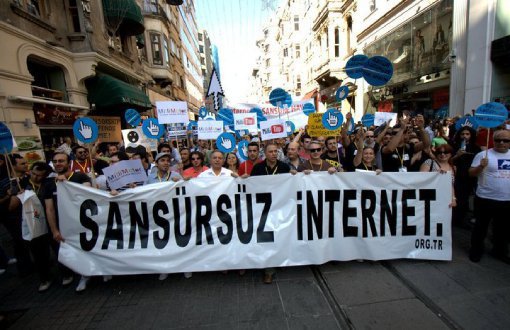
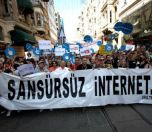
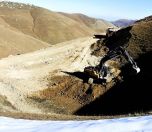
-132.jpg)
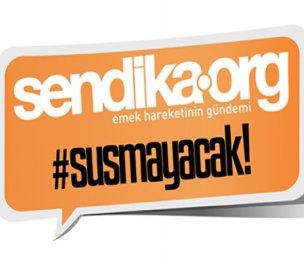
-132.jpg)
